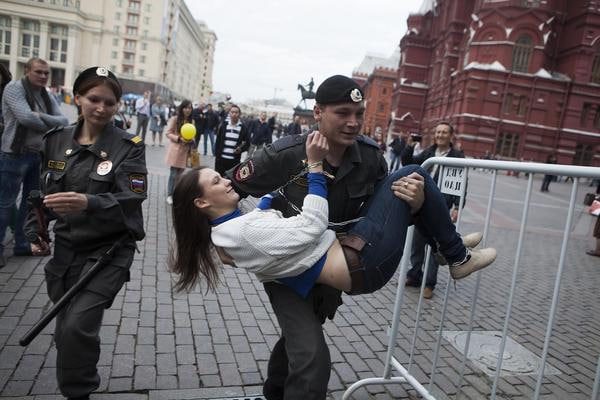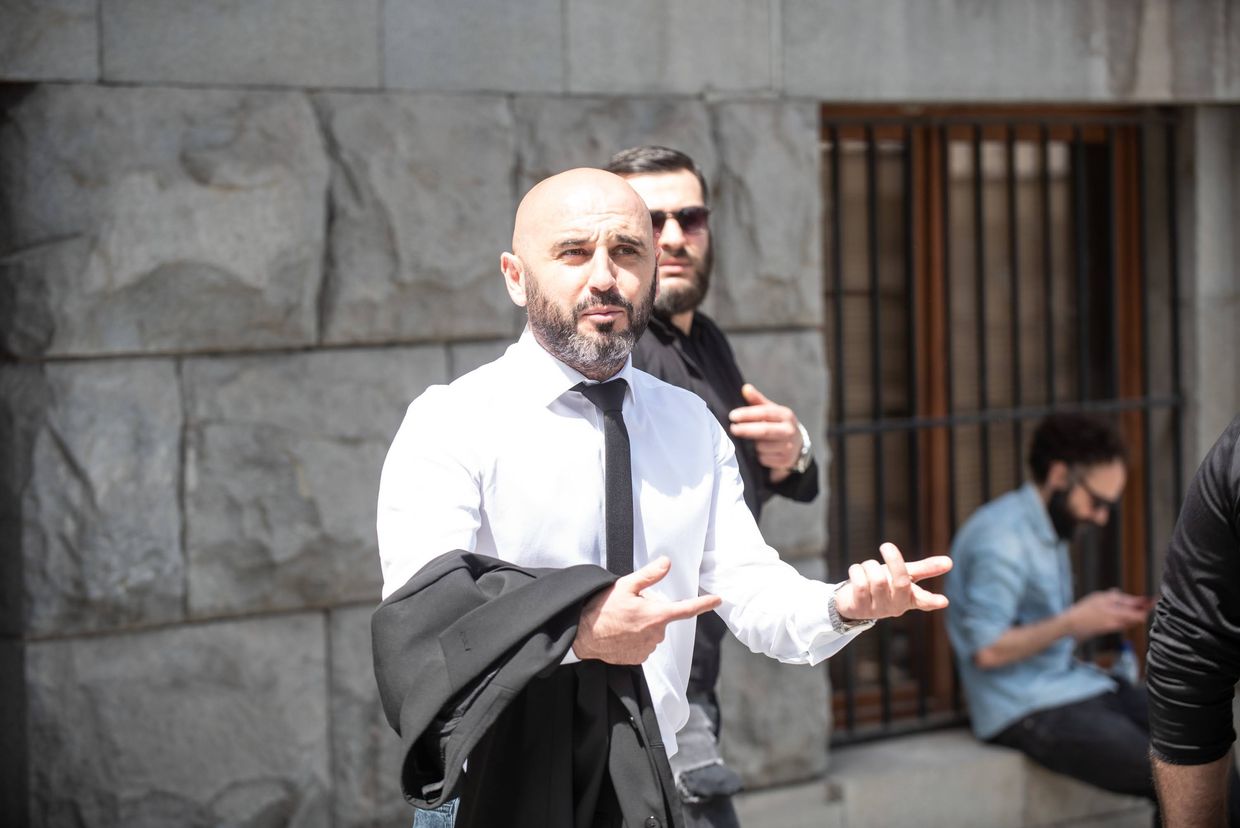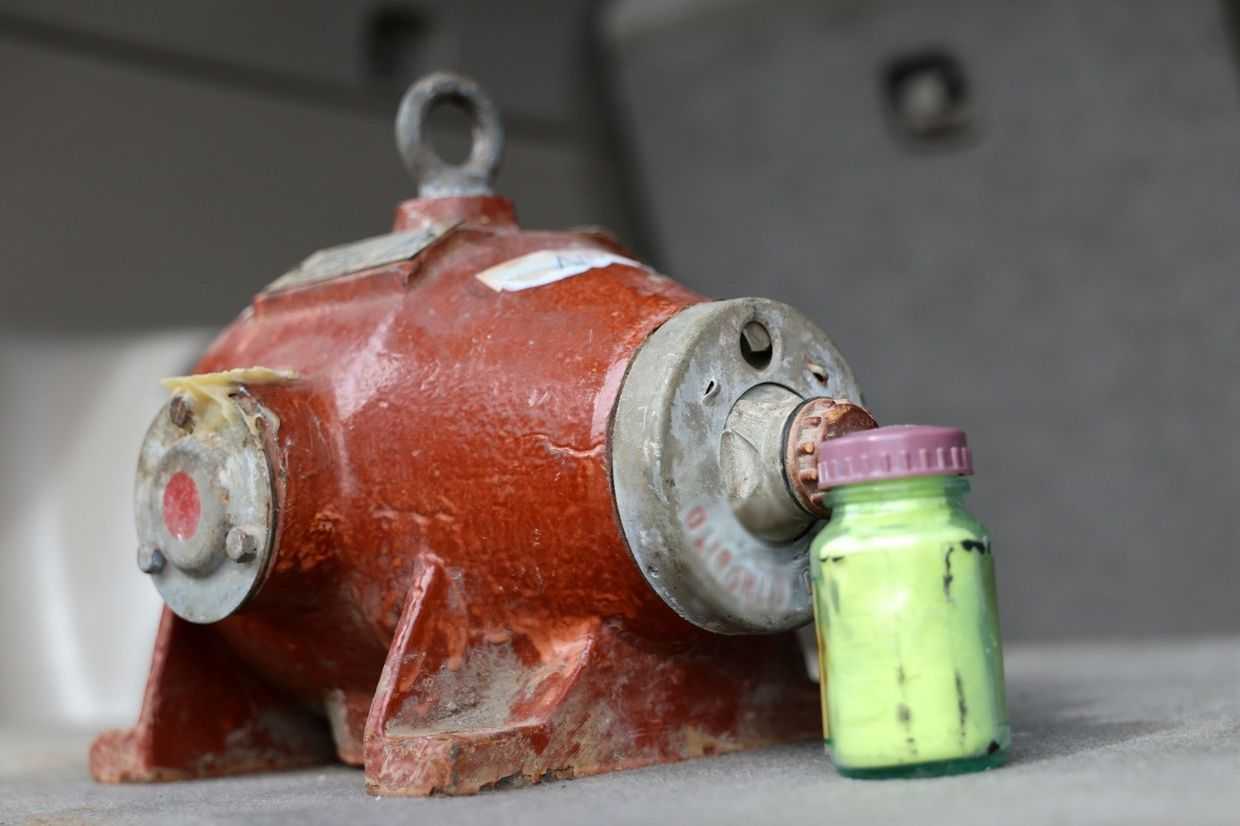
Two Russian activists detained in Georgia during the ongoing anti-government protests, Anastasia Zinovkina and Artem Gribul, have been sentenced to eight and a half years in prison on drug charges.
Judge Nino Galustashvili announced the sentence on Friday.
A total of six protesters, three Georgian nationals and three Russian nationals, were arrested on drug charges during anti-government protests in November and December. Giorgi Akhobadze, Tedo Abramovi, and Nika Katsia were cleared of the charges, while all three Russians, including Anton Chechin, were sentenced to eight and half years in jail in almost identical cases.
According to the Prosecutor General’s Office, Zinovkina and Gribul were found with 16 grams of alpha pvp, allegedly for commercial purposes. Their defence team claimed the drugs were planted on them.
Zinovkina and Gribul, who are partners, were active during the protests, and often offered coffee and tea to the protesters on Rustaveli.
The two were arrested on 17 December. During the trial, lawyers spoke about a number of violations during the arrest
‘The police met them as they were leaving a supermarket. They immediately began searching and assaulting them, putting them in cars, confiscating their bags and coats. An investigator and translator arrived within 10-15 minutes. After they arrived, they returned their coats and bags and told them that they needed to be searched now. The police allegedly found narcotics in the clothes and bags that had been confiscated by the police’, Publika quoted their lawyer Shota Tutberidze as saying at the trial.
No video evidence was recorded during the personal search, and the court did not allow CCTV camera footage to be obtained from the supermarket outside near where the search occurred.
There is video evidence of the police search of their house.
‘The actual search process is not visible there. Some police officers are walking around the rest of the apartment — it is unknown what they are doing, the camera is following others. And when the camera turns and enters the bedroom, which was not previously visible in the camera lens, two packages of narcotics are found near pillows from the bandstand’, Tutberidze said.
Zinovkina reported that she was sexually assaulted after the arrest — she said police officers were touching her, putting their hands in her pockets, while one police officer threatened to rape her.
‘We are not prisoners, we are hostages. Hostages buried alive. Let’s call everything by its name. We are captives’, Zinovkina said in her final speech today in court.
‘They will kill us if you remain silent. If you forget about us. We live as long as you remember and talk about us. We are alive as long as you keep going on Rustaveli Avenue. Only love helps us. Your love helps us and prolongs our lives’.
Zinovkina’s speech continued for over an hour before the judge cut her off. She spoke about a number of issues, including her back pain and lack of treatment. Zinovkina also said her access to the telephone was restricted, and that her letters kept disappearing, never reaching the people they were addressed to.
Zinovkina was an active government critic in Russia and was arrested on various administrative charges while she lived there. She arrived in Georgia in 2022 following the beginning of Russia’s full-scale war in Ukraine, while Gribul went to Armenia after the partial mobilisation in the autumn of that year.

They met there and came back to Georgia in 2024, where they actively participated in anti-government protests. According to Publika, they planned to move to South America in January and had tickets for their flight before they were arrested.
‘Nine months ago, a crime was committed against me and Anastasia. This crime continues to this day. I would like to briefly tell you about the motive. This motive is the same in our case and in Anton’s [Chechin’s]. Fear of losing power and responsibility. This fear is felt in all the actions that this government takes’, Gribul said in court.
‘They are afraid of holding fair elections, of people’s freedom and of civil society. They want to transfer this fear to others. With absurd accusations, planting drugs etc.’, Gribul said, as quoted by Netgazeti.
When the verdict was announced, there was a scuffle with the court bailiff in the court building, which is a common occurrence lately as the verdicts of arrested protesters are announced.
A number of protesters arrested in the demonstrations that began after Georgia’s EU U-turn have received multi-year sentences. So far, Zinovkina, Gribul, and Chechin, all Russian nationals convicted of drug charges — which they believe to be politically motivated — have received the lengthiest sentences.












